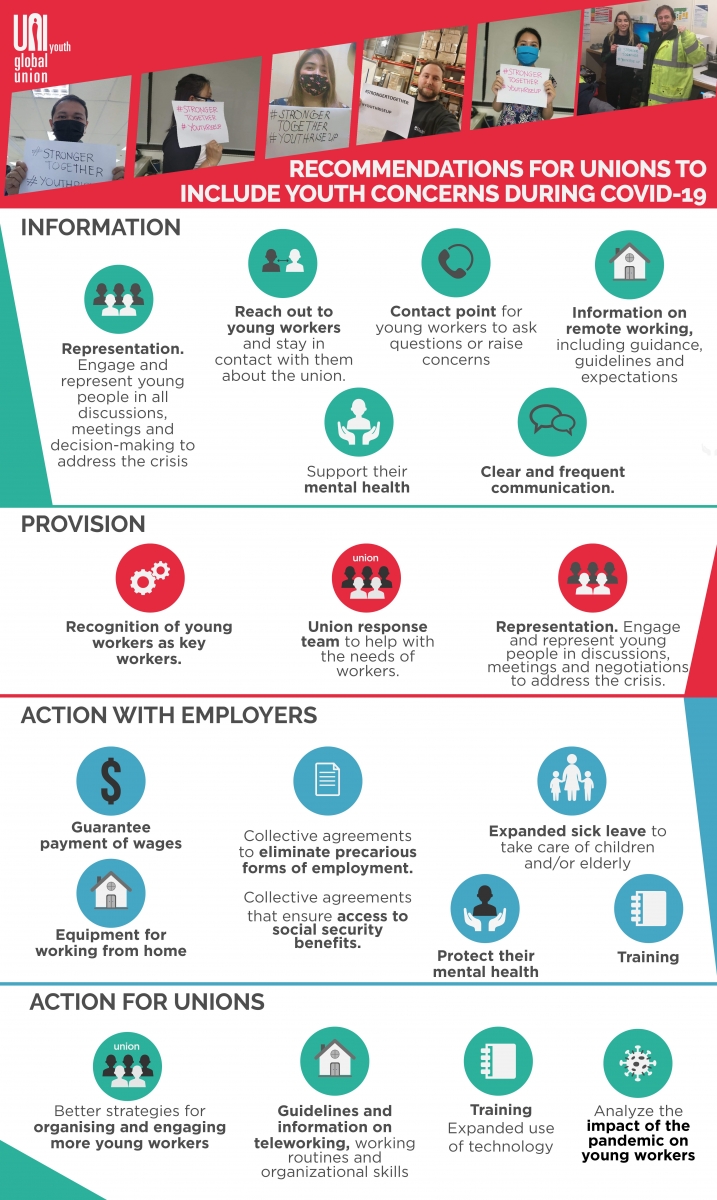Young people around the world are suffering the brunt of the Covid-19 crisis. Across sectors, young workers are being laid off at an alarming rate and less than a month into the lockdown period, in some countries almost one-third of young people have lost their jobs.
“The toll on young workers is particularly tragic because they have had less time to save, often have debt from school or training, and the setbacks they experience now can harm their earnings over the course of their professional lives,” said Christy Hoffman, UNI General Secretary. “The Covid-19 crisis has shone a light on many of the flaws in the global economy, and once this crisis is over, we have to rebuild fairer, stronger societies with collective bargaining at their core, and that includes additional protections for young workers.”
Even before the outbreak of Covid-19, the outlook for young workers was bleak. In its Employment Trends for Youth 2020, the International Labour Organization (ILO) estimated that around 126 million, or 30 per cent of employed youth, remain in extreme or moderate poverty despite having a job. Additionally, over three-quarters of young workers are engaged in informal employment. Jobs held by young people are frequently associated with low pay, limited rights and poor working conditions. For many young workers, the Covid-19 crisis is serving to exacerbate the situation.
“Many of the frontline workers in the pandemic are young workers, and they must have a voice in shaping how we rebuild our economies in its aftermath,” emphasized UNI Youth Director, Marta Ochoa. “UNI will be organizing to send a strong message to governments and employers that we need to change the way we work once we’re out of this crisis.”
Predominantly young, essential services such as food delivery and contact centres don’t have the luxury of being able to work from home. Often without proper personal protective equipment, these workers are potentially risking exposing themselves and their families to the virus for jobs they can’t afford to lose.
Young workers are also more likely to be hit with unemployment or financial instability in lockdown. They constitute the majority of workers in some of the sectors that have been hit hardest by the pandemic – tourism, retail, and food services. In the UK, the virus lockdown has been shown to hit younger workers the hardest, as they are two-and-a-half times more likely to work in a shutdown area. In Uganda, 77% of workers in tourism are below the age of 30, and in the US 19.3 million young workers in tourism, retail and food services face job loss and precariousness.
The latest figures show the disastrous effect of Covid-19 on working hours and salaries. According to the ILO, in the next three months there could be a loss of over 195 million full-time equivalent jobs. Already the US has seen more than 16 million workers filing for unemployment in the last week, many of them young workers.




